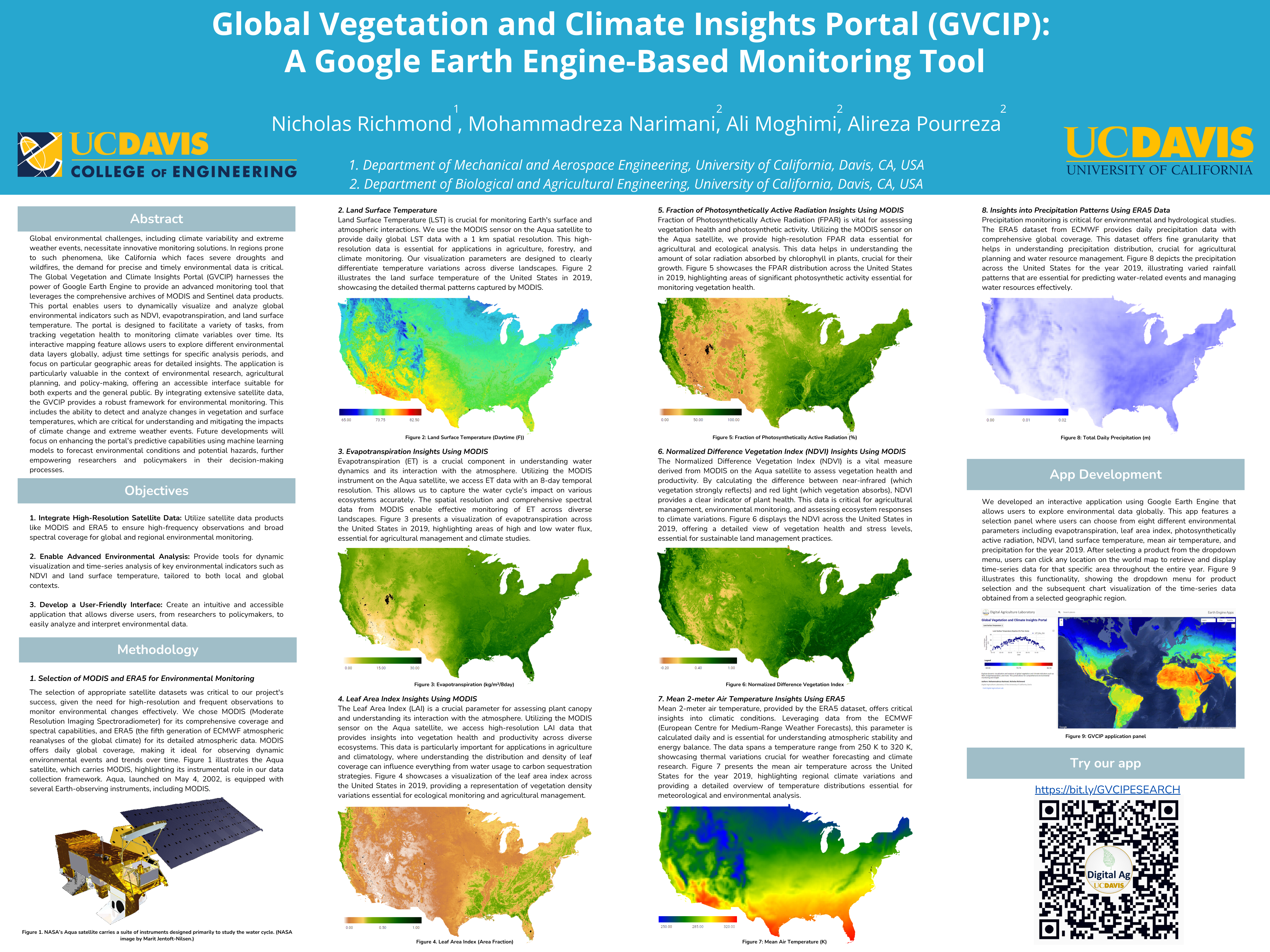Global Vegetation and Climate Insights Portal (GVCIP)
Authors: Mohammadreza Narimani, Nicholas Richmond
Description
The Global Vegetation and Climate Insights Portal is an advanced web application developed using Google Earth Engine (GEE). This tool facilitates dynamic visualization and analysis of global vegetation and climate indicators such as Evapotranspiration, Leaf Area Index, and NDVI. It allows users to explore environmental conditions across the globe through an interactive map interface.
Key Functionalities Include:
- Interactive Mapping: View and analyze global environmental data layers dynamically.
- Data Layer Selection: Users can select from a variety of data layers including NDVI, Evapotranspiration, and Land Surface Temperature.
- Time-Range Filtering: Adjust the time range to visualize data from specific periods.
- Automated Scaling: Data values are scaled appropriately for effective visualization.
- Region-Specific Analysis: Focus on a specific geographic area for detailed environmental insights.
- Legend and Visualization: A dynamic legend updates based on the selected data layer to represent value ranges with corresponding colors.
This portal leverages the comprehensive satellite data archives available within Google Earth Engine, providing researchers, educators, and policymakers with crucial information for environmental monitoring, agricultural planning, and climate research.
Explore the Code
To view the source code and contribute to the development, visit the repository on Google Earth Engine Code Editor: Global Vegetation and Climate Insights Portal Code
Explore the App
Experience the application live: Global Vegetation and Climate Insights Portal App
Sample Code Snippet
Below is a short snippet from the Global Vegetation and Climate Insights Portal.js file demonstrating
how we define some global variables and set up the product layers in GEE:
// Key functionalities: NDVI, ET, LAI, etc.
var products = {
'Evapotranspiration': {
collection: 'MODIS/061/MOD16A2GF',
band: 'ET',
...
},
'Leaf Area Index': {
collection: 'MODIS/061/MOD15A2H',
band: 'Lai_500m',
...
},
...
};
// Initialize the application in GEE
function initializeUI() {
var mapPanel = ui.Map();
...
// Set up UI panels, legend, and map interactions
...
}
initializeUI();
Conference Poster
Check out the poster of this work that we presented at the ESEARCH program of UC Davis in the summer of 2024. Click on the image below to view the full PDF:

Contact
For further information, collaborations, or questions, please contact:
Mohammadreza Narimani at
mnarimani@ucdavis.edu.
For more information about our lab and other projects, please visit Digital Agriculture Lab.